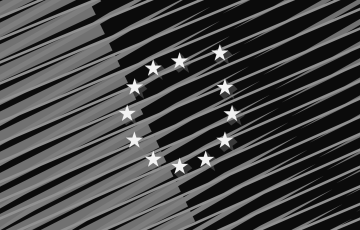The UK Government has announced the postponement of checks on imported food and fresh products from the EU until the end of 2023, under the terms of a review of the post-Brexit regime.
The controls were due to be introduced in July of this year but the UK Government has announced a review that will look into the implementation of SPS checks “in an improved way”. The conclusions of the report will be published in the Autumn, with the new controls regime coming into force by the end of next year.
A sigh of relief
Many UK Traders, Hauliers & Customs Agents will welcome the news. Significant disruption at UK Ports, with already strained infrastructure would’ve caused huge issues for the fresh and chilled Food industry. Some Organisations, such as the NFU and the Ports Association, have criticised the decision as it sets British Traders at a competitive disadvantage with an uneven EU Border. There are, also, real issues with Disease Outbreak Monitoring and Animal Health.
Inside the Government Decision
The past week has seen a number of Border Operations Committee meetings across UK Government. From reports, there has been a generally tense atmosphere between the Cabinet Office & OGDs. There’s a number of good very good reasons for the postponement of checks. Here’s a few insights:
- Extremely limited BCP Vet capacity to implement EU>GB Checks
- DEFRA not fully consulted on the delay. The decision was taken by CO Border Ops.
- General unreadiness of Traders, Gov, Hauliers, etc. This date wasn’t taken entirely seriously by wider Gov.
- Concerns over IPAFFS and its’ infrastructure environment
- Broader Government concerns on the cost of living and food price implications for additional SPS Border compliance.
DEFRA, however, must feel on the back foot within the wider Government. DEFRA must walk a line between the facilitation of trade and the necessity to control the UK’s biosecurity and animal-plant health. Given DEFRA’s 6-year planning for Brexit, they are now up against a policy landscape and timeline that is in some conflict with their previous work & objectives:
- The Single Trade Window (STW) will be in beta around AW23 – IPAFFS as a front-end system for GB Import Control on EU products may never truly be needed.
- The new ‘Trusted Trader’ Scheme will be beyond its pilot in 2023-24 and may contain a number of SPS allowances & easements
- There’s continued talk of a ‘Veterinary Equivalence Agreement’ in Government as part of NI discussions – this could ultimately mean no SPS checks/EHCs for EU>GB at all. (Our belief is that this is a bit of a long shot with the current administration but stranger things have happened).
- DEFRA has a number of fundamental decisions to make regarding its organisational structure and the use of the FSA, EA and other Departments to facilitate international trade.
What Next?
For many Traders, the pressure is now off. Traders can focus on optimising their fiscal Customs compliance. However, Traders should look to explore and understand the GB import Controls based on a number of known facts for 2022-23:
- The UK Government has no plans to change the SPS Import Control legislation (S.I 782/2019 (“TARP”))
- Understanding the baseline controls on your products is still a priority for UK Importers of Food & Agri-products
- A ‘Trusted Trader’ scheme may be implemented in advance of the 31st December 2023 deadline with SPS Allowances & Benefits
- Any systems or operational planning for GB HCs, IPAFFS, or CHEDs can be deferred into early 2023.
If you would like to discuss your options for understanding the GB Import Controls, exploring the exemptions and derogation regimes, or moving towards the automation of your SPS Compliance – please get in touch.





